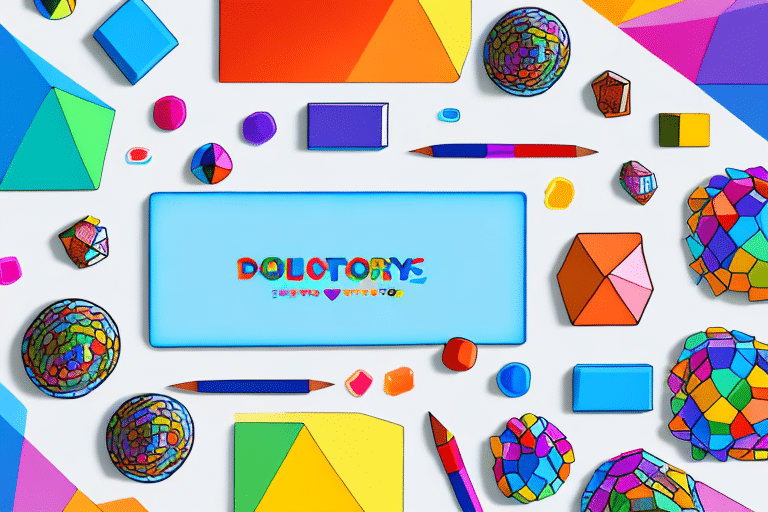Top 10 E-Commerce Platforms for Toys and Games
Are you a toy and game seller looking to take your business online? In today’s digital age, having an effective e-commerce platform is crucial for showcasing your products, handling transactions, and providing exceptional customer support. The right platform can significantly impact the success of your online business. In this article, we’ll explore the top 10 e-commerce platforms for toys and games, their features, pros, cons, and help you decide which platform best fits your business needs.
Benefits of Using E-Commerce Platforms for Toys and Games
Switching to an e-commerce platform offers numerous advantages for toy and game sellers:
- Wider Reach and Accessibility: Reach customers globally, beyond the limitations of a physical store.
- Diverse Product Selection: Offer a broader range of products sourced from anywhere in the world.
- Detailed Product Information: Provide high-quality images, videos, and comprehensive descriptions to aid purchasing decisions.
- Customer Reviews and Ratings: Enhance trust and credibility with peer reviews.
- Increased Convenience: Allow customers to shop 24/7 from the comfort of their homes.
- Potential for Higher Sales: Utilize various marketing tools and analytics to boost sales and optimize performance.
According to Statista, global e-commerce sales are projected to reach $6.38 trillion by 2024, highlighting the immense potential for online toy and game sellers.
Key Features to Consider in an E-Commerce Platform
When selecting an e-commerce platform for your toys and games business, consider the following key features:
- Budget: Assess the cost of the platform, including monthly fees, transaction fees, and additional costs for plugins or themes.
- Customization Options: Ensure the platform allows you to design and customize your store to reflect your brand identity.
- Scalability: Choose a platform that can grow with your business, handling increased traffic and sales seamlessly.
- Usability: Opt for a user-friendly platform that doesn’t require extensive technical knowledge.
- Customer Support: Ensure reliable and accessible customer support to assist with any issues or questions.
- Integrated Marketing Tools: Look for platforms offering SEO tools, email marketing, and social media integration.
- Security Features: Prioritize platforms with robust security measures to protect customer data and transactions.
Top 10 E-Commerce Platforms for Toys and Games
1. Shopify
Shopify is a leading e-commerce platform renowned for its ease of use, extensive customization options, and robust app ecosystem. It offers various pricing plans to suit different business sizes, with transaction fees ranging from 0.5% to 2%. Shopify is ideal for toy and game sellers who value simplicity, design flexibility, and reliable performance.
- Pros: User-friendly interface, vast app store, responsive customer support.
- Cons: Transaction fees on lower-tier plans, limited customization without plugins.
2. WooCommerce
WooCommerce is a powerful e-commerce plugin for WordPress, perfect for sellers who want full control over their store’s design and functionality. It’s free to use and highly customizable, allowing the sale of both physical and digital products, managing subscriptions, and integrating with various payment gateways and shipping options. However, it requires some technical skills to set up and manage effectively.
- Pros: Highly customizable, scalable, large community support.
- Cons: Requires technical knowledge, costs can add up with extensions.
3. Magento
Magento is a robust e-commerce platform best suited for large, enterprise-level toy and game sellers who require advanced features and integrations. It offers both a free Community Edition and a paid Enterprise Edition, the latter providing more features and dedicated support. Magento is highly customizable but demands significant technical expertise, making it ideal for professional developers and large businesses.
- Pros: Extremely customizable, scalable, strong SEO capabilities.
- Cons: Requires technical expertise, higher costs for Enterprise Edition.
4. BigCommerce
BigCommerce is a reliable e-commerce platform that emphasizes user-friendliness, design, and scalability. It offers various pricing plans with transaction fees ranging from 0% to 1.5%, making it suitable for toy and game sellers aiming for growth and omnichannel selling. BigCommerce integrates seamlessly with major marketplaces and social media platforms.
- Pros: No transaction fees, scalable, comprehensive built-in features.
- Cons: Annual sales thresholds, less theme flexibility compared to Shopify.
5. Volusion
Volusion is an easy-to-use e-commerce platform offering a range of design and functionality options. Ideal for toy and game sellers seeking a straightforward yet powerful platform, Volusion provides different pricing plans with transaction fees from 0% to 2.15%. It includes built-in tools for SEO, inventory management, and customer analytics.
- Pros: Intuitive interface, built-in SEO tools, comprehensive analytics.
- Cons: Limited payment gateways, higher transaction fees on lower plans.
6. Squarespace
Squarespace is renowned for its elegant website builder and templates, but it also offers robust e-commerce features for toy and game sellers. It’s ideal for those who want a visually appealing platform that integrates seamlessly with their website. Squarespace offers various pricing plans with transaction fees ranging from 0% to 3%.
- Pros: Beautiful, responsive templates, easy to use, strong blogging features.
- Cons: Limited payment gateways, higher transaction fees on some plans.
7. Wix
Wix is a popular website builder that also provides comprehensive e-commerce features for toy and game sellers. It’s perfect for those seeking a visually stunning and user-friendly platform with little technical expertise required. Wix offers various pricing plans with transaction fees ranging from 0% to 2.9%.
- Pros: Drag-and-drop editor, extensive template library, flexible design options.
- Cons: Limited scalability for larger businesses, transaction fees on some plans.
8. PrestaShop
PrestaShop is a free, open-source e-commerce platform offering a wide array of features and customization options for toy and game sellers. It’s ideal for those who desire complete control over their store, but it requires some technical knowledge and web hosting. PrestaShop is highly customizable, scalable, and supported by a large community of developers.
- Pros: Free to use, highly customizable, large community support.
- Cons: Requires technical expertise, costs for hosting and modules.
9. OpenCart
OpenCart is a simple and user-friendly e-commerce platform offering a variety of features and customization options for toy and game sellers. It’s ideal for those wanting a lightweight and scalable platform that can handle most of their needs. OpenCart is free to use, though it requires web hosting and some technical knowledge to set up.
- Pros: Lightweight, easy to use, extensive extension marketplace.
- Cons: Limited built-in features, requires technical knowledge for advanced customization.
10. Ecwid
Ecwid is a flexible e-commerce platform that can be easily integrated into any existing website, including CMS platforms like WordPress, Joomla, or social media pages. It’s ideal for toy and game sellers looking for a quick and easy solution without migrating fully to a new platform. Ecwid offers multiple pricing plans, including a free tier with basic features.
- Pros: Easy integration, multi-platform support, scalable pricing plans.
- Cons: Limited customization, fewer built-in marketing tools.
Choosing the Right E-Commerce Platform for Your Toys and Games Business
Selecting the best e-commerce platform for your toy and game business involves evaluating your specific needs and business goals. Consider factors such as:
- Business Size: Choose a platform that can scale with your business growth.
- Budget: Ensure the platform fits within your financial constraints, including potential costs for upgrades or add-ons.
- Technical Expertise: Opt for a platform that matches your level of technical skill or the resources you have for managing your store.
- Customization Needs: Determine how much control you need over your store’s design and functionality.
- Integration Requirements: Ensure the platform integrates with your existing tools and marketing channels.
Conclusion: Which E-Commerce Platform is Best for Your Toys or Games Business?
Choosing the right e-commerce platform for your toy and game business requires careful consideration of factors such as budget, features, scalability, and usability. Platforms like Shopify and BigCommerce offer user-friendly setups with reliable support, making them great choices for businesses looking for ease of use and scalability. On the other hand, platforms like Magento and PrestaShop provide more advanced features and customization options, suitable for larger, enterprise-level businesses.
Ultimately, the best e-commerce platform for you will align with your business goals and objectives. Regardless of which platform you choose, ensure you optimize your store’s design, product descriptions, and marketing strategies to enhance sales and customer satisfaction. Implementing SEO best practices, utilizing data analytics, and maintaining excellent customer service will contribute to the long-term success of your online toy and game business. For more insights on e-commerce strategies, refer to industry reports from sources like Forbes and Shopify’s Blog. Good luck!








